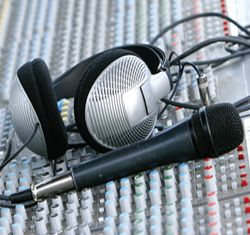So much of what we do as sound engineers is based on habit and repetition. Better safe than sorry, if it ain’t broke don’t fix it, that’s the way everyone does it, and so on.
I enjoy questioning and testing that validity of these patterns. One of the beautiful aspects of live sound is that there is no true right or wrong way, but rather, certain approaches are more likely to result in preferable outcomes than others.
With that in mind, let’s focus on the process we most commonly call “sound check.”
Why EQ the kick drum by itself with all the other microphones turned off? How often during the actual show do you mute every other mic to just hear that kick drum sound? How relevant and useful is it to waste oh-so-valuable sound check time EQ’ing solitary mics only to start over once the rest of the stage mic interactions are introduced?
Of course I understand doing a quick test of every mic individually, but beyond that, what we really need to know is how that instrument sounds with all the other mics turned on as well. Seems we forget that every mic hears everything on stage at some level.
Want way more time to really get your sound dialed in and have the band love you at the same time? At the next gig, walk in and tell the band, “O.K., this is how I would like to sound check. After a quick tap line check to make sure everything works, you guys come on up and do whatever you want, rock some tunes, rehearse and jam.
“First we’ll get monitors sorted and close. To avoid confusion, here is a simple hand signal method, point at what you want and then point at where you want it and then point up or down so we know what to do. And while you’re rocking out, I’ll get all your sounds dialed in out front. I may stop you for a moment if there’s a particular problem, but what’s best for me is for you to play as many tunes as possible and get comfortable on this stage.
“Oh, and drummer person, if you can, lean into some extra toms so I can grab them as well.”
Important Things
Congratulations—you’ve just gone from having your band annoyed with being subjected to 50 hits on each drum to having happy musicians doing what they (hopefully) truly love.
With the artists playing, bring up each instrument and get a rough EQ and meanwhile, you also learn important things like how much the cymbals bleed into the toms, or how much guitar is getting into the vocal mics while you are EQ’ing them.















